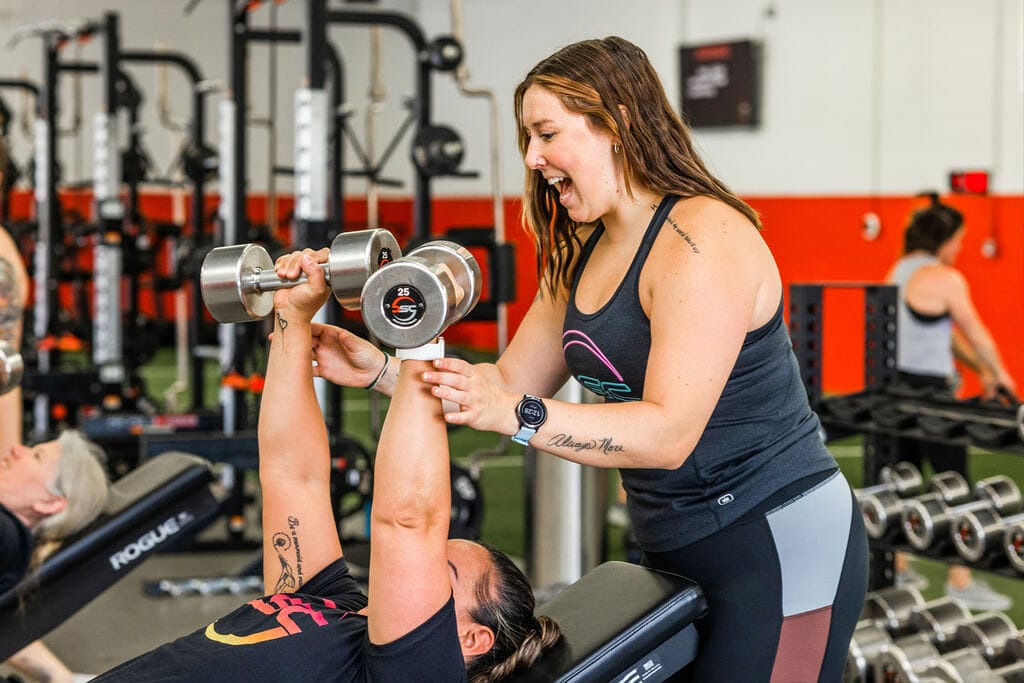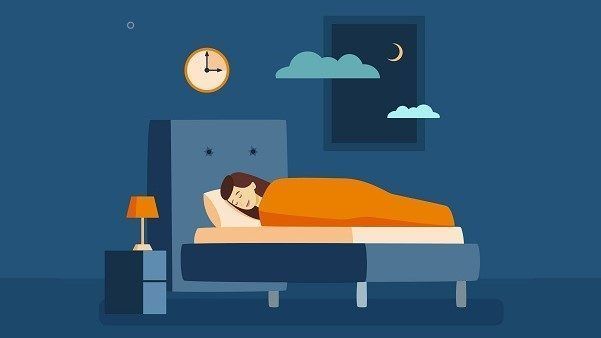When it comes to keeping you healthy, your best line of defense is a strong, well-functioning immune system.
Your immune system’s job is to keep you healthy. Think of it as your body’s army of defense. It works behind the scenes to stop things like bacteria and various viruses from wreaking havoc on your body.
Like the digestion of our food, we don’t have direct control over our immune system to start it or stop it. Instead, its strength and function is a result of our overall health.
The healthier we are overall, the healthier and better functioning our immune system is.
In other words, for your immune system to be as strong as possible and protect you from various illnesses, germs, and other invaders, you need to be as healthy and fit as possible, both physically and mentally.
We have a real opportunity right now to start to take steps in the right direction to boost our overall health and immune system.
So how do we improve our overall health and immune system?
Let’s get into your 4 tips to boost your immune system this winter.
1| Exercise
Let movement be thy medicine!
#1 on our list is exercise. It provides a host of benefits that directly and indirectly impact the health and function of your overall immune system.

Research shows regular exercise has a profound impact on your defense against various illnesses, diseases, and infections. The healthier and more fit you are, the better and more robust your immune system’s defense is. Other research has shown immune function increase after each workout by increasing the levels of certain proteins that fight infection, flushing out the lungs and airways, increasing body temperature, and improving the circulation of the cells that fight off foreign invaders. Regular exercise also decreases the amount of inflammatory cells that weaken your immune system.
Exercise also has a big impact on reducing stress and increasing happiness. During times of stress, our immune system, its efficiency, and function is suppressed. The more stress we’re under, the more weak and vulnerable our immune system will be. The great news is that exercise is the worlds most powerful anti-stress, anti-anxiety, and anti-depressant available.
2| Sleep

The research is very clear. Poor sleep decreases the function of your immune system. The less you sleep and the less quality sleep you have, the more likely and more frequently you will get sick. A lack of sleep decreases our immune system’s defense properties and increases inflammation.
So how much sleep should we aim to get and how to do we improve our sleep?
Aim for 7-9 hours of sleep per night. Keep in mind that improving your sleep, like anything, takes time. Start slow and aim for small wins to build momentum and a healthy routine.
Here are some tips to help you improve your sleep and feel your best!
1. Be consistent: Try to stay in the routine of going to bed and waking up at the same time each day. Going to bed late or sleeping in on the weekends can disrupt your weekday sleep.
2. Exercise during the morning or afternoon: Exercising very late at night elevates your stress hormones and can make it hard to fall asleep.
3. Avoid caffeine later in the day: Caffeine can stay in your system for the entire day. Stop your intake of caffeine after 12pm to avoid it impacting your ability to fall and stay asleep at night.
4. Turn off electronics in your room: The light from your electronics (phone, tv, gaming systems, etc) will signal your brain to stay awake and make it harder to fall asleep. The light from electronics also decreases the release of your very important sleep hormone, melatonin, so keep them off and out of the bedroom!
5. Read a book or mediate before bed: Calm your mind and get into a relaxed state with a book or mediation. These are also great alternatives for your usual technology-filled nighttime routine!
6. Make your room as dark as possible: This will signal your body that it’s time for bed. Turn off the TV and any other lights. Black-out shades work great as well.
7. Use a background noise: Try adding some light noise like a fan to help you fall asleep. While some people swear by this, other people find background noise to be distracting so be sure to find what works for you!
8. Make your room temperature cool: A room temperature between 66 and 70 degrees F works well. A room that is too hot or too cold will make it difficult to fall or stay asleep.
3| Nutrition
-min.jpg)
The foods you eat have a direct impact on your health and immune system. A poor diet lacking nutritious foods like fruits and vegetables will make it harder for you to fight off your illness if you do get sick.
To make our immune system stronger and more effective, it needs the right nutrients, vitamins and minerals, proteins, and fats from non-processed food sources. We also need the right amounts of these as under-eating will not give your immune system the fuel it needs to do it’s job.
To improve your nutrition and immune system, focus on removing the foods that negatively impact our immune system like foods that are processed, packaged, and full of fat and sugar.
To boost your immune system, focus on:
- Eating real, whole foods (can you pick it, grow it, or hunt it? If so, it’s good to go!)
- Increasing your fruit and vegetable intake
- Hydrating throughout the day (drinking at least 64oz of water each day)
- Including protein in each meal and snack
- Making more meals at home
- Adding healthy fats to your diet
4| Personal care
Taking care of yourself and making YOU a priority is important for both your overall well being and your immune system. While “self care” is a trendy hot-topic, it is for good reason. Self-care is not just about your mental health, it’s also about caring for your physical self.
Here are some steps to take today to drastically improve your body’s defense:
1. Wash your hands frequently
2. Avoid touching your face
3. Reduce stress and anxiety (workout, mediation, reading a good book)
4. Rest when you are sick
